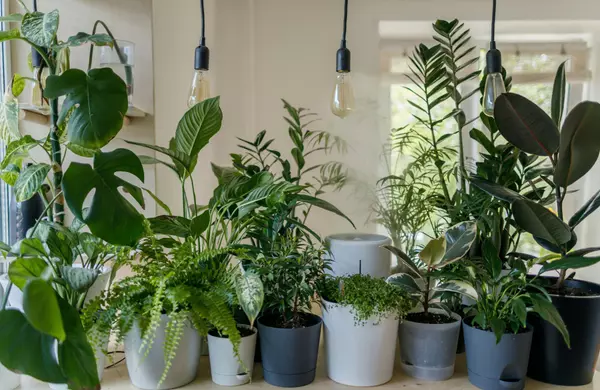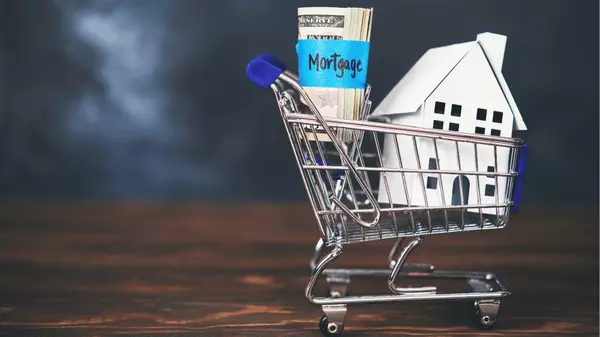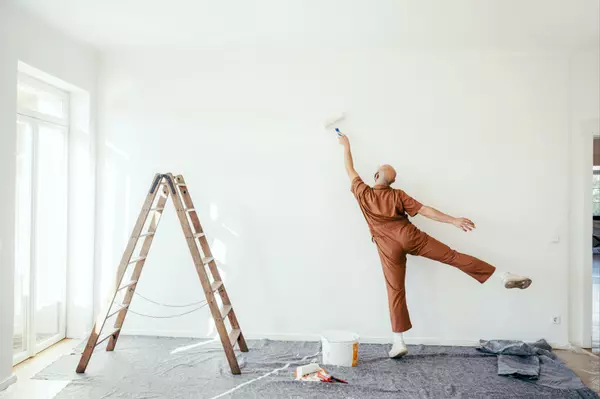
Post-Hurricane Recovery Resources & Tips
Post-Hurricane Recovery Resources & Tips I understand how natural disasters can affect our local community, and I wanted to provide this list of steps to help guide anyone who may have unforseen property damage here in the South Florida area. We are here to help you recover and rebuild when any hurricane, tropical storm, or tornado affects our local area. Below is a list of trusted vendors and essential tips to guide you through the process. --- Essential Recovery Tips:1. Safety First: - Avoid flooded areas and be cautious of fallen power lines. - Use flashlights instead of candles to prevent fire hazards. - If your home has significant damage, wait for professional help before entering. 2. Document the Damage: - Take photos and videos of any damage (interior and exterior) to your property for insurance claims. - Keep detailed records of repairs and expenses for reimbursement. 3. Contact Your Insurance Company: - Report the damage as soon as possible. - Ask about coverage and get approval for emergency repairs. - Save receipts for all repair-related expenses. 4. Avoid Scams: - Be wary of door-to-door repair offers. - Hire only licensed and insured contractors. - Get written estimates and never pay the full amount upfront. 5. Prevent Mold Growth: - Dry out wet areas within 48 hours using fans and dehumidifiers. - Remove wet carpet, drywall, or insulation if necessary. 6. Repair Roof Leaks Quickly: - Cover damaged areas with tarps to prevent further damage. - Call a professional roofer to assess and fix issues. --- Trusted Local Vendors: 1. Tree Removal Services - Tree Trimmings, Inc. – (561) 396-4392 - T-Lows Lawn & Landscaping – (561) 502-2508 2. Roofing Companies - Mark And Son Construction, Inc. – (561) 758-8499 - JHI Roofing – (561) 260-4233 - Florida State Roof Systems – (561) 964-9335 3. Water Damage & Mold Remediation - A Plus Mold Remediation – (561) 323-3978 - ServPro – (561) 454-8119 4. Electricians - Freshwater & Sons Electric – (561) 371-6490 - CER Electrical Services Inc. – (954) 410-8228 - HU Energy – (954) 608-1635 5. General Contractors - E&E Remodeling Solutions – (561) 344-2274 - AZ Contracting – (561) 305-1486 - Felipe Fontinne – (561) 562-2321 6. Furniture & Item Removal - Darius Pressey – (561) 657-7759 - Junk Luggers – (361) 384-5546 7. Impact Windows - STS Impact Windows & Doors – (561) 600-1018 - Neptune Impact Windows – (954) 802-9003 --- For additional resources and support, don’t hesitate to reach out to us. My team and I are here to help you navigate these challenging times. We are stronger together as one community and if you need any anything at all, do not hesitate to give me a call.

Indication of an Upcoming Housing Crash
Based on the FHFA’s 2nd Quarter 2024 Foreclosure Prevention and Refinance Report, there is no immediate indication of a housing crash in the next 12 months. Here’s a breakdown of key insights for homeowners and buyers: 1. Foreclosure Prevention & Loan Modifications: Over 46,000 foreclosure prevention actions were completed in Q2 2024, with 32% of loan modifications reducing monthly payments by more than 20%. This shows that measures are actively being taken to help troubled homeowners avoid foreclosure, reducing the likelihood of a mass sell-off or market downturn. 2. Serious Delinquency Rate: The serious delinquency rate for Fannie Mae and Freddie Mac loans decreased slightly to 0.49%, much lower than the rates for FHA loans (3.17%) and VA loans (2.07%). This low delinquency rate suggests that most homeowners are keeping up with mortgage payments, another positive sign for market stability. 3. Refinancing Activity: Refinances increased significantly from the previous quarter, showing that homeowners are taking advantage of better mortgage terms, which helps stabilize their financial situations and prevents potential defaults. 4. Forbearance Decline: The number of loans in forbearance decreased slightly, with only 0.10% of loans in active forbearance. This suggests fewer homeowners are relying on temporary relief, indicating overall improved mortgage performance. 5. Foreclosure & REO Activity: Foreclosure starts and sales both fell during the second quarter, and the REO inventory (properties owned by the Enterprises through foreclosure) decreased as dispositions outpaced acquisitions. Fewer foreclosures and a shrinking REO inventory indicate that distressed properties are being efficiently managed without flooding the market. The housing market remains relatively stable, with low delinquency rates, declining foreclosure numbers, and active measures in place to help struggling homeowners. While housing markets can be unpredictable, these indicators suggest that a housing crash is unlikely in the next 12 months. For homeowners, refinancing options are improving, and buyers should feel reassured by the market's resilience, though local conditions and personal financial situations should guide decision-making. Source: https://www.fhfa.gov/news/news-release/fhfa-releases-2nd-quarter-2024-foreclosure-prevention-and-refinance-report

Improving Your Home's Indoor Air Quality: Essential Tips for a Healthier Living Space
As we spend a significant portion of our time indoors, particularly in our own homes, it's crucial to consider aspects of our living environment that aren't immediately obvious—one of which is indoor air quality. While we might not see the quality of the air we breathe, it has a profound impact on our health and well-being. According to the Environmental Protection Agency (EPA), indoor air can be up to five times more polluted than outdoor air. This pollution can stem from a variety of sources including mold, mildew, smoke, dust, and other invisible allergens that could be lurking in your home. However, improving the air quality in your home doesn't have to be complicated. Here are some effective strategies to ensure you're breathing cleaner air. 1. Utilize VentilationOne of the simplest yet most effective ways to improve indoor air quality is by enhancing ventilation. Use exhaust fans in kitchens and bathrooms to remove contaminants directly from where they originate. Also, opening windows whenever possible helps to flush out stale air and bring in fresh air from outside. 2. Choose Natural Cleaning ProductsMany conventional cleaning products contain chemicals that can emit various toxic compounds into the air. Opt for natural cleaning products that don't release these harmful chemicals. Brands like Mrs. Meyers, Method, or even homemade solutions involving vinegar and baking soda can be excellent alternatives. 3. Maintain Regular Cleaning SchedulesDust and pet dander are common indoor air pollutants that accumulate on surfaces throughout the home. Regular dusting and vacuuming with a HEPA filter-equipped vacuum cleaner can significantly reduce their presence, thus improving the air quality. 4. Incorporate Indoor PlantsA notable study by NASA highlighted the benefits of having indoor plants to filter toxins from the air. Plants such as spider plants, snake plants, and peace lilies can absorb harmful toxins like benzene, formaldehyde, and trichloroethylene. To explore more about the types of plants and their specific benefits, you can reference a detailed article [here](https://www.aol.com/29-plant-set-designed-improve-213104134.html). 5. Change AC Filters RegularlyAnother critical aspect of maintaining indoor air quality is to ensure that your air conditioning filters are replaced monthly. These filters trap dust, pollen, and other airborne particles. Regular replacement not only helps to keep the air clean but also enhances the efficiency of your HVAC system. 6. Control Indoor Temperature and HumidityKeeping your indoor temperature below 78 degrees Fahrenheit and managing humidity levels can prevent the growth of mold and mildew. These fungi thrive in warm, humid environments and can significantly degrade air quality. A dehumidifier can be an effective tool in particularly damp areas of your home. 7. Invest in an Air PurifierFor households in areas prone to high pollution or for those with severe allergies, investing in an air purifier can be a worthwhile consideration. Air purifiers with HEPA filters are especially good at removing particulate matter, ensuring cleaner air circulation within the home. By implementing these strategies, not only can you enhance your home's air quality, but you also contribute to a healthier living environment for yourself and your family. Remember, the cleaner the air you breathe, the better your overall health will be. Start with simple steps and gradually integrate more as needed to breathe easier at home. Articles for references: https://nypost.com/article/best-air-purifiers-for-allergies/ https://www.aol.com/29-plant-set-designed-improve-213104134.html https://www.realsimple.com/home-organizing/cleaning/how-to-improve-indoor-air-quality https://www.nytimes.com/wirecutter/reviews/best-home-air-quality-monitor/ https://ntrs.nasa.gov/citations/19930072988
Categories
Recent Posts











